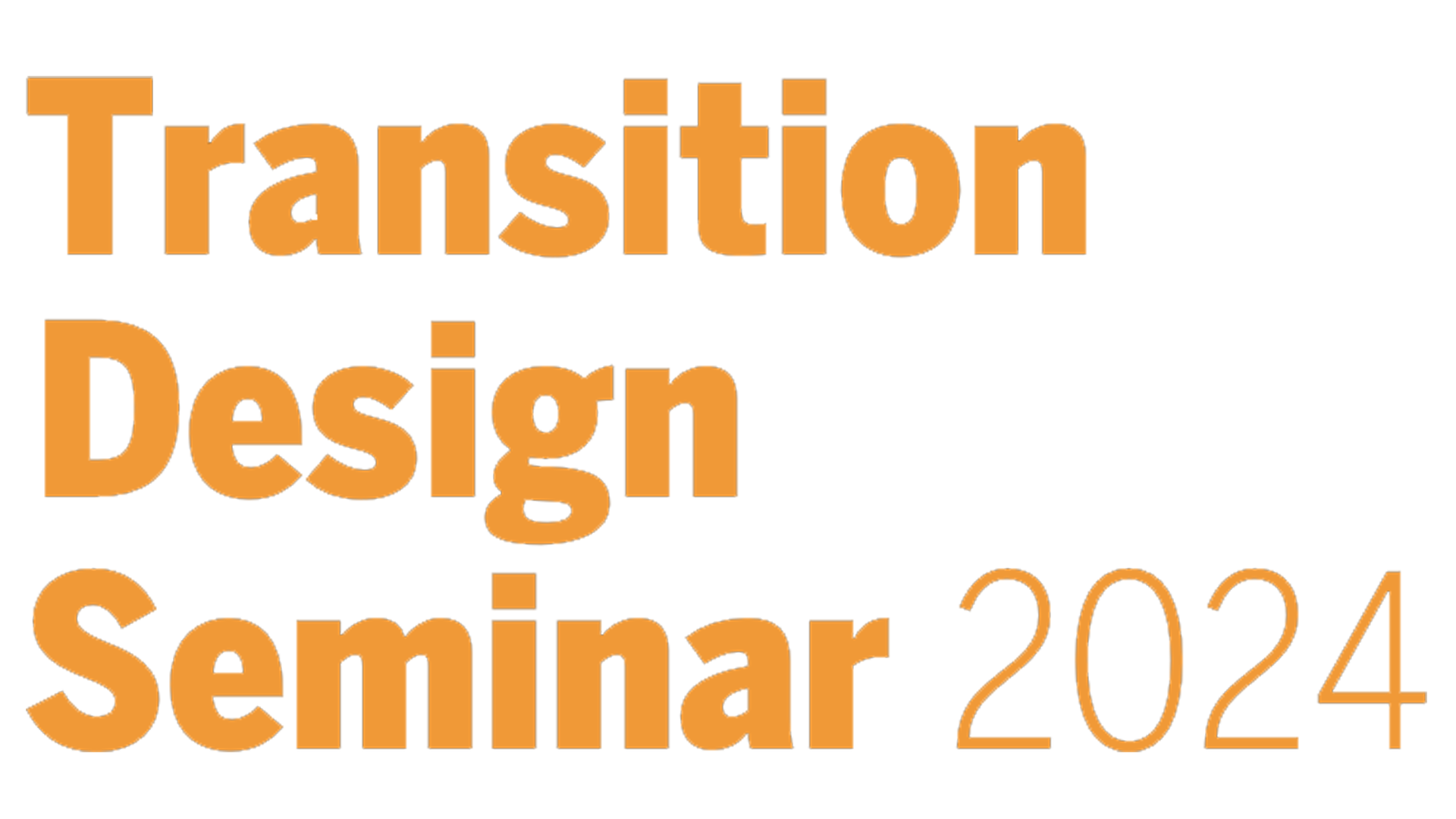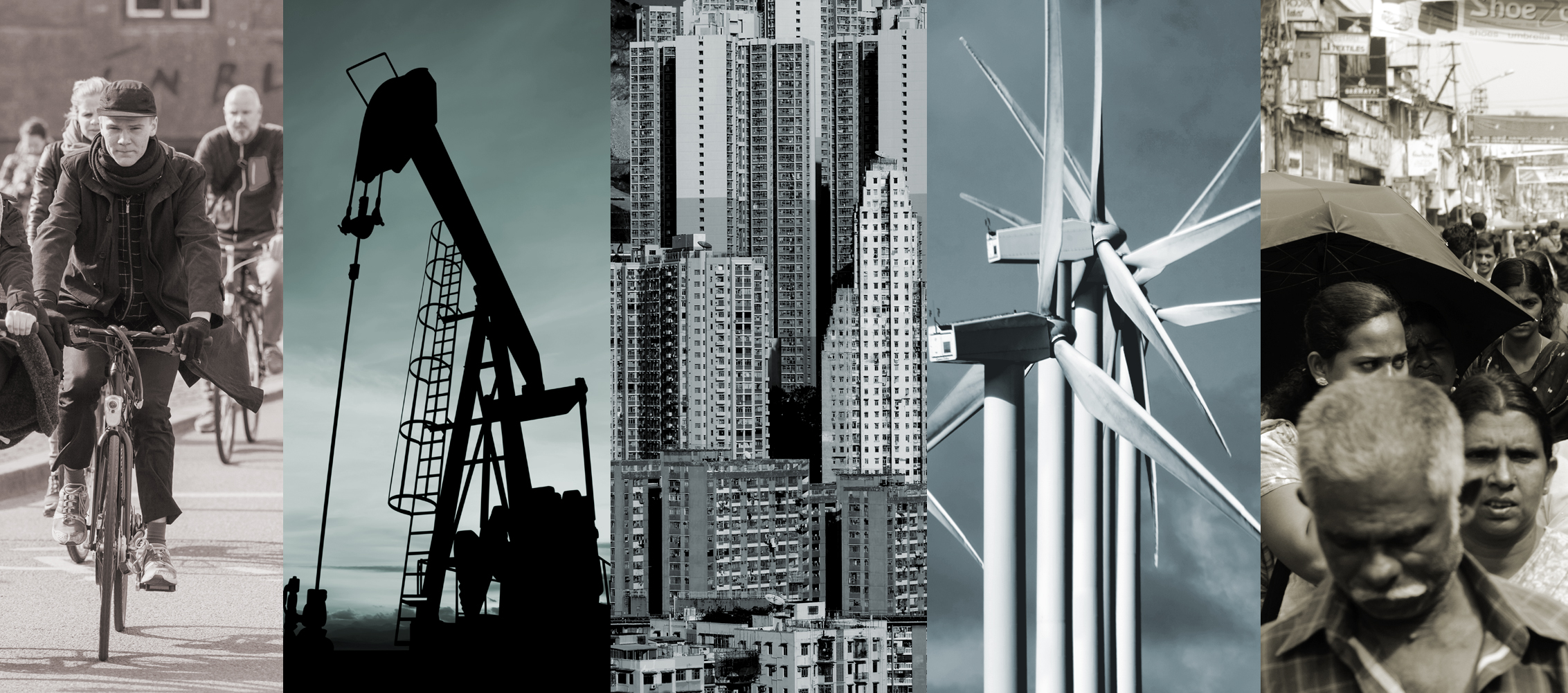Welcome to the website and syllabus for the Transition Design Seminar in the School of Design at Carnegie Mellon University. The site is temporarily offline while we update its structure and content.
Transition Design is an emerging, transdisciplinary approach for addressing complex, “wicked”, systems problems and catalyzing societal transitions toward more sustainable, equitable and desirable long-term futures. This applied approach was launched in the School of Design at Carnegie Mellon University in 2015 and since then has been integrated into course work and research strands in more than 20 universities worldwide.
Since the COVID-19 quarantine in March 2020, the approach has been introduced to researchers and practitioners from a wide range of fields and disciplines via online workshops and short courses. Participants have included community activists, practitioners and educators from diverse disciplines (design, business, engineering, architecture, anthropology and policy), representatives from non-profit organizations and members of local communities from cities in the United States, Canada, Mexico, Argentina and the U.K.
The wicked problems confronting 21st century societies include things like: global pandemics; forced migration; lack of access to affordable housing and education; issues related to climate change; systemic racism and oppression; lack of access to healthy food; political polarization; and loss of biodiversity, to name just a few. These problems are comprised of interrelated and interdependent social, political, infrastructural, environmental and economic factors that manifest in place-based and culture-specific ways. And, because these problems took a long time to become ‘wicked,’ they will therefore take a long time—perhaps decades—to resolve.
The Transition Design approach provides a practical framework for: 1) mapping wicked problems and their complex, conflictual, stakeholder relations; 2) mapping the historic evolution of the problem in order to reveal insights from the past that can inform solutions in the present; 3) the co-creation by stakeholders of visions of long-term futures that are sustainable, equitable and desirable; 4) ‘designing’ the transition between the problematic present and the desired long-term future; 6) designing entire ecologies of solutions (interventions) at multiple levels of scale, that solve for multiple issues simultaneously.
A new Transition Design Institute at Carnegie Mellon University will launch in 2021 to forward the practice and methodology, and also support the efforts of practitioners, educators, policymakers and communities around the world who are addressing wicked problems and working to catalyze transitions toward better long-term futures.
If you would like to know more about Transition Design and the work of the Transition Design Institute, or be added to the mailing list, please email Professor Terry Irwin, Director of the Institute or Dr. Gideon Kossoff, Associate Director: tirwin@andrew.cmu.edu and gkossoff@andrew.cmu.edu.
If you are an educator using this online syllabus, please email us to be notified when the site comes back online.
Published papers and research materials on Transition Design:
https://cmu.academia.edu/TerryIrwin
https://cmu.academia.edu/GideonKossoff
Video lectures on Transition Design
Terry Irwin on Transition Design: Design for Systems-Level Change
https://www.youtube.com/watch?v=fDmBXxRqsW8&ab_channel=IITInstituteofDesign
Terry Irwin on COVID-19 in the U.S. Through the Lens of Transition Design
https://www.youtube.com/watch?v=ZEg3z3WAxRA&t=475s&ab_channel=TransitionDesignInstitute
Gideon Kossoff on Cosmopolitan Localism: Transition Design and the Planetary Networking of Everyday Life in Place

